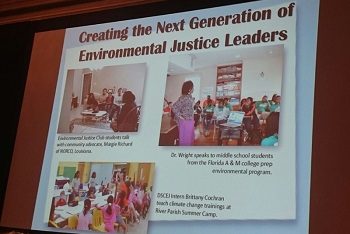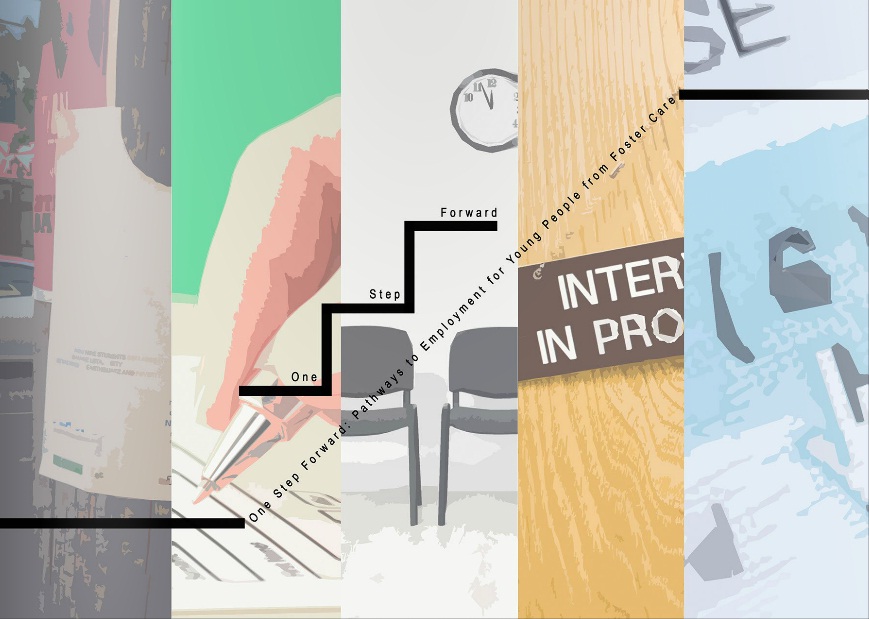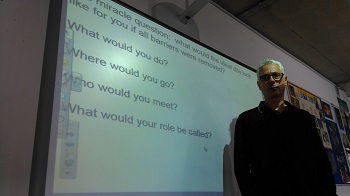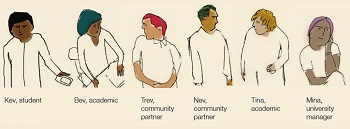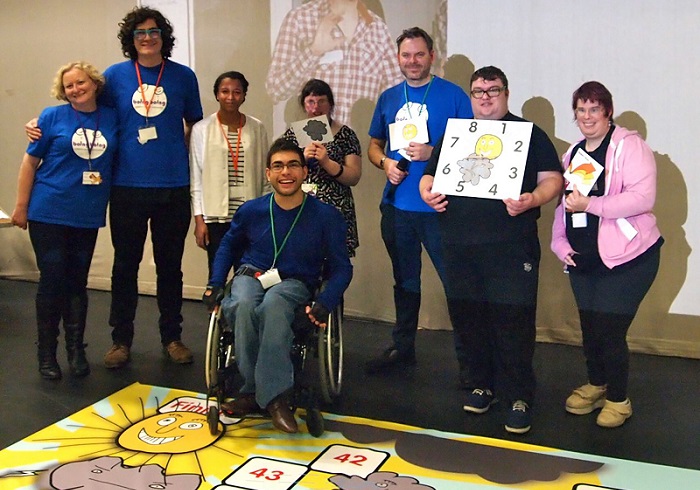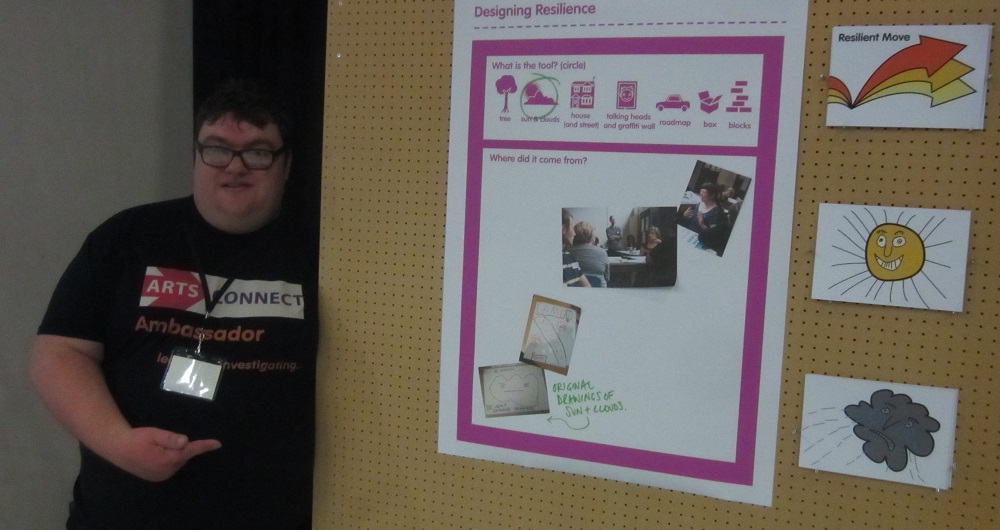After many years of hanging around with academics I have learnt that ‘community partners’ is code in the international university world for ‘organisations and people who are NOT quite as important as us’. In my head I have often added my own secret addition ‘but are actually doing real things with real people’. This is why I like working with the Boingboing community and CUPP.
 [email protected]
[email protected]
A visual guide to resilience written & illustrated by young people in foster care and care leavers, Boingboing, the Virtual School for Children in Care and the University of Brighton. Navigate your route towards resilience! Take your time to explore the activities, enjoy the images and take inspiration.
Topic: Creating a future vision – David Wolff, Community University Partnership Programme Resources: You can download Dave’s slides and you can read our Blog. Session Summary: This session is about developing a future vision for your work using creative techniques. Based on the research project that the Community University Partnership Programme undertook on their 10 year … Read more
Prof Sue Kildea’s doing her talk on Indigenous birthing in an urban setting. Sue’s been working in this area for years now, though often out in the most remote parts of Australia. Working side by side with Indigenous Australians, she’s learnt loads about Aboriginal health and culture. I’m so excited that she’s here.
Birthing in Our Community Program. It is an intensive model of targeted early antenatal engagement, home visiting, co-ordination of services and cultural capacity building with Indigenous cultural guidance and oversight through a Steering Committee. We aim to work with families to strengthen their resilience.
Co-production in resilience research and why it’s great is on the bill for today’s Resilience Forum. Anne Rathbone, PhD student in the Boingboing group at the University of Brighton, has been working with Arts Connect, a group supporting people with learning disabilities through Arts Practices, for 18 months now. They’re doing a co-inquiry group on resilience. She’s at the podium, along with Mikey and Dominic from Arts Connect.
What the academic literature says about why co-produced resilience research is important, the views of the co-researchers on the value of the experience for them and others, some examples of how we have tried (and succeeded!) in changing unfair situations that present us with tough challenges and what our research is saying about resilience for our group.
Yehuda Tagar, assisted by colleague and fellow therapist Tessa Martina, was here to convince us of the value the Methodical Empathy approach, which draws on the transformative power of theatre, as well as various counselling and psychotherapeutic theories, and resonated for some with mindfulness-based compassion and meta-cognition.
Methodical Empathy is a skill-based method of self-training which can be imparted to anyone with any level of starting point. It combines the objectives of self care, requiring ‘self-empathy’ with the objectives of understanding and caring for others, as the one cannot evolve without the other.
